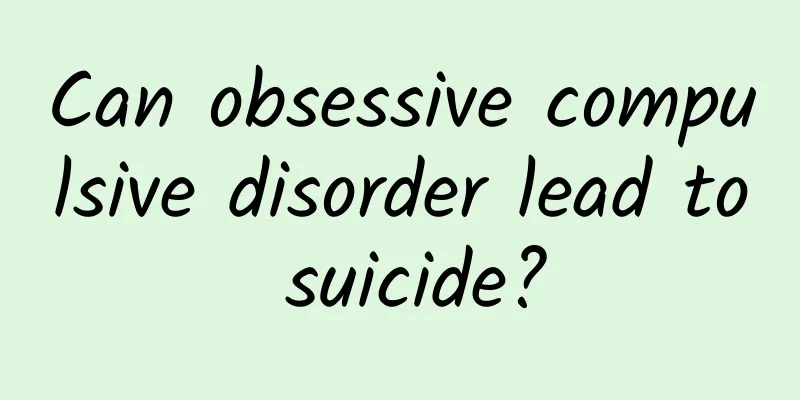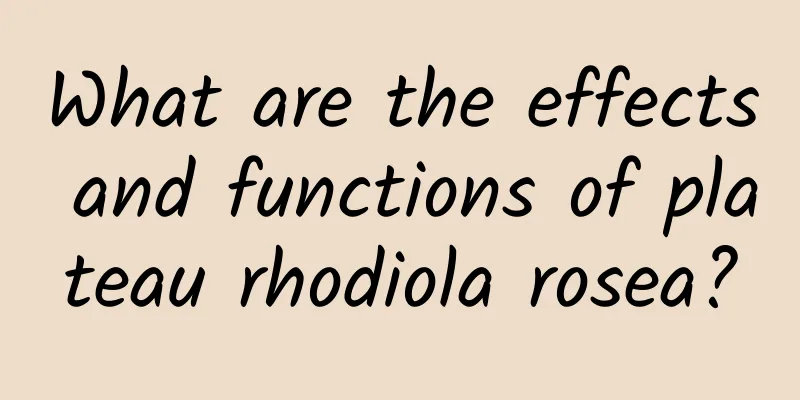Can obsessive compulsive disorder lead to suicide?

|
Obsessive-compulsive disorder is a relatively serious mental illness. Patients usually show anxiety, mental tension and other phenomena due to excessive psychological pressure. If you suffer from obsessive-compulsive disorder, in addition to seeking help from a psychologist, the most important thing is to learn to self-regulate. If obsessive-compulsive disorder is not treated in time, it may even turn into other mental illnesses. So, can people with OCD commit suicide? Which mental illnesses are likely to lead to suicide? The incidence of suicide has been getting higher and higher in today's life, especially in the face of today's rapidly developing society. The greater the pressure people face, the more likely they are to be troubled by mental illness, so in the end they may choose to commit suicide. Steps/Methods: 1. Depression. What are the mental illnesses that are likely to lead to suicide? Depression ranks first. A large amount of evidence has proved that although not all patients with depression have suicidal thoughts and behaviors, most of those who commit suicide have depression. 2. Schizophrenia: Schizophrenia patients may be forced to go down a path of no return due to disordered thoughts, hallucinations, and delusions. The motives for suicide of this type of people are varied. Some are called by God or deceased relatives, while others feel they are being persecuted and have no other options, so they want to commit suicide. 3. Anxiety disorder: With the increasing number of suicides among people suffering from anxiety disorder in recent years, it has become an important factor that cannot be ignored in the mental illness that is prone to suicide. 4. Analysis of obsessive-compulsive disorder: The reasons for suicide in patients with obsessive-compulsive disorder. On the one hand, due to unbearable mental torture, patients with obsessive-compulsive disorder may choose suicide to relieve depression. On the other hand, some patients with obsessive-compulsive disorder cannot be cured for a long time, so their thoughts become extreme and they want to end the obsessive thoughts and behaviors by destroying themselves. 5. Insomnia: Long-term lack of sleep may lead to cognitive dysfunction and reduced sense of happiness, which in turn may trigger suicidal impulses. Note: In addition to affecting mental health, the above-mentioned mental illnesses are also the most common psychological causes of suicide. Therefore, we must pay attention to mental health in our daily lives. When we find ourselves with these psychological problems, we need timely adjustments and treatments. |
<<: External use of Panax notoginseng powder
>>: Protrusion of lower back bone
Recommend
Which is cooler, iced coffee or iced cola? The correct answer is...
On hot days, besides air conditioning, the best t...
Many people dream of traveling through time. After watching the conflicting film "The Tomorrow War," you'll know how absurd it is.
The so-called time travel is to travel from one t...
Effects and functions of Catalpa strychnifolia
Catalpa ovata is a medicinal material frequently ...
Why is it so hard to keep a secret?
"I only told you this, don't tell anyone...
Are we really helpless in the face of poplar catkins?
In Beijing in spring, there are often two kinds o...
The world is talking about room temperature superconductivity. Does it have anything to do with you? Yes, it does!
Planning: Little Dandelion, 91 This issue's c...
Can wolfberry replenish blood?
In daily life, we often find wolfberries in some ...
This year's new trend! Make tassel earrings out of plants!
Recently, a plant that can be used as "tasse...
How to keep vegetables fresh when stocking up at home?
Mixed Knowledge Specially designed to cure confus...
The efficacy and function of peach leaves
Peach leaves are something that many people are v...
Why do you always feel that you are not good-looking?
This article was reviewed by Zhao Wei, MD, associ...
Being sick is not necessarily a bad thing! Frequently getting these diseases may help you stay healthy and live longer
"Doctor, doctor, please take a look at our c...
Why do I recommend you raise Rudina fowl instead of Call ducks?
The glorious era of the Call duck is still vivid ...









